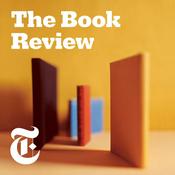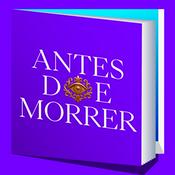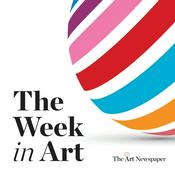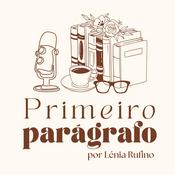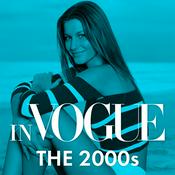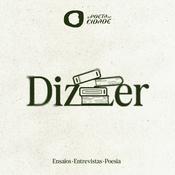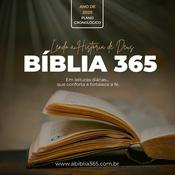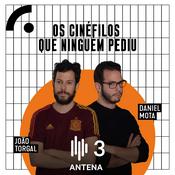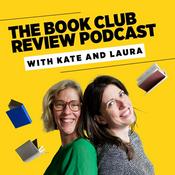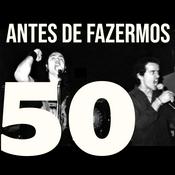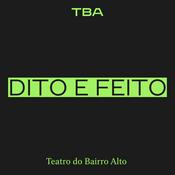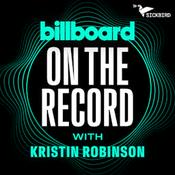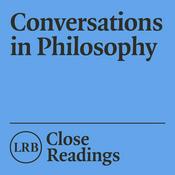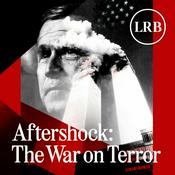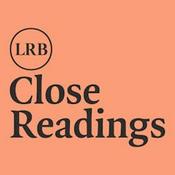14 episódios

Samuel Johnson, Gerard Manley Hopkins and Mick Imlah
22/12/2025 | 16min
Samuel Johnson’s doctor, Robert Levet, had piecemeal medical knowledge at best, was described as an ‘an obscure practiser in physick’ by James Boswell and was only paid for his work with gin. Yet for Johnson this eccentric man deserved a poetic tribute for demonstrating ‘the power of the art without show’, a phrase that could as much describe the poem itself. In this episode, Seamus and Mark close their series by looking at the ways in which Johnson’s elegy, 'On the Death of Dr Robert Levet', rejects the pastoral heroism of the poem they started with, Milton’s ‘Lycidas’, and compare it to two poems that offer their own kinds of unsentimental, eccentric portrait: 'Felix Randal' by Gerard Manley Hopkins and 'Stephen Boyd, 1957-99' by Mick Imlah. Seamus and Mark will be back in January to start their new series, 'Narrative Poems'. Non-subscribers will only hear an extract from this episode. To listen to the full episode, and to all our other Close Readings series, subscribe: Directly in Apple Podcasts: https://lrb.me/applecrld In other podcast apps: https://lrb.me/closereadingsld Find tickets to Seamus's LRB Winter Lecture in London here: https://lrb.me/perrywlpod Further reading in the LRB: Freya Johnston on Samuel Johnson: https://www.lrb.co.uk/the-paper/v41/n09/freya-johnston/i-m-coming-my-tetsie! Patricia Beer on Hopkins: https://www.lrb.co.uk/the-paper/v14/n11/patricia-beer/what-he-meant-by-happiness

Thom Gunn and Paul Muldoon
24/11/2025 | 16min
Thom Gunn’s career as an elegist was tied closely to the onset of the Aids epidemic in the 1980s, during which he saw many of his friends die. Despite loosening his early formalism after absorbing the work of the New American Poets, Gunn’s vision of the poet was not as a confessional diarist but rather a careful stylist of well-wrought verse drawing on the traditions of Fulke Greville and Ben Jonson. In this episode, Seamus and Mark look at elegies including ‘Talbot Road’, ‘The Gas-poker’ and others from his celebrated collection The Man with Night Sweats, where Gunn combined this allusive, rhetorical style with a poignant realism to recreate his subjects. They then turn to the more self-reflexive, oblique elegies of Paul Muldoon, who has reinvented the form in richly-patterned, playful poems such as ‘The Soap Pig’ and ‘Incantata’. Non-subscribers will only hear an extract from this episode. To listen to the full episode, and to all our other Close Readings series, subscribe: Directly in Apple Podcasts: https://lrb.me/applecrld In other podcast apps: https://lrb.me/closereadingsld More in the LRB: Thom Gunn's 'Lament': https://lrb.me/ldep12gunn1 Colm Tóibín on Gunn: https://lrb.me/ldep12gunn2 Michael Nott: Thom Gunn in New York: https://lrb.me/ldep12gunn3 Markl Ford on Muldoon: https://lrb.me/ldep12muldoon1

Elegies for Poets by Auden, Arnold and Schuyler
27/10/2025 | 14min
When poets elegise other poets, the results are often more about self-scrutiny and analysis of the nature of poetry than about grief. Matthew Arnold commented on his elegy for Arthur Hugh Clough, ‘Thyrsis’ (1865), that ‘one has the feeling that not enough is said about Clough in it.’ In his elegy for W.B. Yeats (1939), Auden insists that ‘poetry makes nothing happen’. Both poems resist idealisation of their subject and use the elegy’s pastoral tradition as a way of distancing themselves from the poetic sensibility of their subject. In this episode, Seamus and Mark discuss the ways in which Arnold and Auden’s visions of what a poet should be aren’t so far apart, and finish with a look at James Schuyler’s similarly unromantic elegy for Auden, in which he finds ‘so little to say’. Non-subscribers will only hear an extract from this episode. To listen to the full episode, and to all our other Close Readings series, subscribe: Directly in Apple Podcasts: https://lrb.me/applecrld In other podcast apps: https://lrb.me/closereadingsld Arnold's 'Thyrsis': https://lrb.me/ldep11thyrsis Auden's 'In Memory of W.B. Yeats': https://lrb.me/ldep11yeats More in the LRB: Seamus Perry on Auden: https://lrb.me/ldep11auden Stefan Collini on Arnold: https://lrb.me/ldep11arnold

'Surge' by Jay Bernard and 'In Nearby Bushes' by Kei Miller
29/9/2025 | 15min
Jay Bernard’s 'Surge' and Kei Miller’s 'In Nearby Bushes', both published in 2019, address acts of violence whose victims were not directly known to the writers: in Surge, the deaths of thirteen Black teenagers in the New Cross Fire of 1981; in Miller’s poem, a series of rapes and murders in Jamaica. Both can be seen as collective elegies, interleaving newspaper and medical reports, and other archival documents, with more lyrical passages, and both can be read as comments on the state of the nation as well as personal expressions of desolation. While Bernard’s poem opens out into an investigation of radical Black history and the marginalisation of Black communities in London, Miller uses blanked-out newspaper items, among other techniques, to search for the ‘understory’, an experience beyond language, which is in turn connected to colonial, and pre-colonial, Jamaica. In this episode, Mark and Seamus consider the different ways these poets respond to the shocking events they depict, while also incorporating them into a broader poetic landscape. Watch Jay Bernard reading from 'Surge' at the London Review Bookshop: https://youtu.be/XTZKYEimq2Y Non-subscribers will only hear an extract from this episode. To listen to the full episode, and to all our other Close Readings series, subscribe: Directly in Apple Podcasts: https://lrb.me/applecrld In other podcast apps: https://lrb.me/closereadingsld

‘Poems of 1912-13’ by Thomas Hardy
31/8/2025 | 13min
Without Emma Gifford, we might never have heard of Thomas Hardy. Hardy’s first wife was instrumental in his decision to abandon architecture for a writing career, and a direct influence – possibly collaborator – on his early novels. Their marriage, initially passionate, defied family expectations and class barriers, but by the time of Emma’s death, it had deteriorated into hostility and bitterness. Out of grief, regret and ambivalence, Hardy produced the work Mark Ford considers to be among ‘the greatest poems in any language’: Poems of 1912-13. Mark and Seamus discuss the collection in the light of what Hardy called ‘strange necromancy’: the reconfiguring of Emma as ghost, critic, corpse and mythic lover. They pay close attention to the tight structure and novelistic detail in these poems, which exemplify Hardy’s gift for mixing the lyrical with realism. Non-subscribers will only hear an extract from this episode. To listen to the full episode, and to all our other Close Readings series, subscribe: Directly in Apple Podcasts: https://lrb.me/applecrld In other podcast apps: https://lrb.me/closereadingsld Read the poems: https://www.gutenberg.org/files/2863/2863-h/2863-h.htm Further reading and listening from the LRB: On Mark’s book, Woman Much Missed: https://www.lrb.co.uk/the-paper/v46/n19/matthew-bevis/i-prefer-my-mare Hugh Haughton on Hardy’s ghosts and Emma’s diary: https://www.lrb.co.uk/the-paper/v07/n21/hugh-haughton/ghosts Dinah Birch on the letters of the two Mrs Hardies: https://www.lrb.co.uk/the-paper/v18/n22/dinah-birch/defence-of-the-housefly Mark and Seamus on Hardy for Modern-ish Poets: https://www.lrb.co.uk/podcasts-and-videos/podcasts/close-readings/modern-ish-poets-thomas-hardy Mark and Mary Wellesley discuss A Pair of Blue Eyes: https://www.lrb.co.uk/podcasts-and-videos/podcasts/the-lrb-podcast/thomas-hardy-s-medieval-mind
Mais podcasts de Arte
Podcasts em tendência em Arte
Sobre Love and Death
Ouve Love and Death, Palavrão e muitos outros podcasts de todo o mundo com a aplicação radio.pt
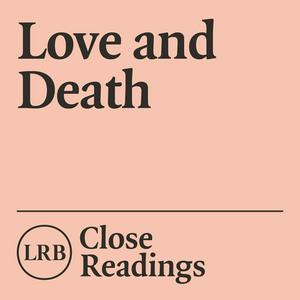
Obtenha a aplicação gratuita radio.pt
- Guardar rádios e podcasts favoritos
- Transmissão via Wi-Fi ou Bluetooth
- Carplay & Android Audo compatìvel
- E ainda mais funções
Obtenha a aplicação gratuita radio.pt
- Guardar rádios e podcasts favoritos
- Transmissão via Wi-Fi ou Bluetooth
- Carplay & Android Audo compatìvel
- E ainda mais funções


Love and Death
descarregue a aplicação,
ouça.





